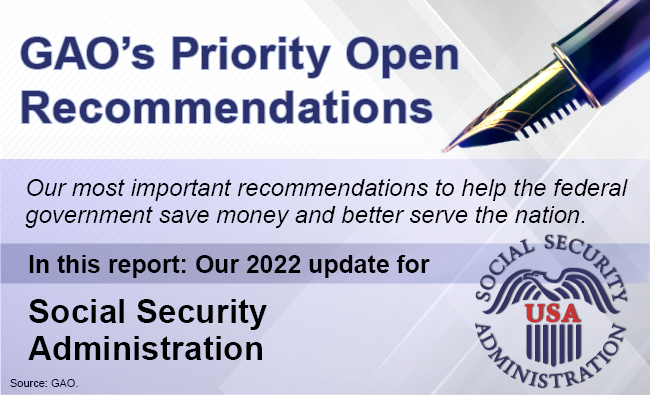Priority Open Recommendations: Social Security Administration
Fast Facts
Each year, we make more than 1,000 recommendations to help improve the federal government. We alert department heads to where they can save the most money, address issues on our High Risk List, or significantly improve government operations.
This report outlines our 6 priority open recommendations for the Social Security Administration as of May 2022. For example, we recommended improving oversight of the "representative payees" who help vulnerable beneficiaries—such as people in nursing homes—manage their Social Security benefits.

Highlights
What GAO Found
In June 2021, GAO identified four priority recommendations for the Social Security Administration (SSA).In June 2022, GAO identified two additional priority recommendations for SSA, bringing the total number to six. These recommendations involve the following areas:
- ensuring program integrity,
- protecting vulnerable beneficiaries, and
- improving cybersecurity.
SSA's attention to these issues could lead to significant improvements in government operations.
Why GAO Did This Study
Priority open recommendations are the GAO recommendations that warrant priority attention from heads of key departments or agencies because their implementation could save large amounts of money; improve congressional and/or executive branch decision-making on major issues; eliminate mismanagement, fraud, and abuse; or ensure that programs comply with laws and funds are legally spent, among other benefits. Since 2015 GAO has sent letters to selected agencies to highlight the importance of implementing such recommendations.
For more information, contact Cindy Brown Barnes (202) 512-7215 or brownbarnesc@gao.gov.
